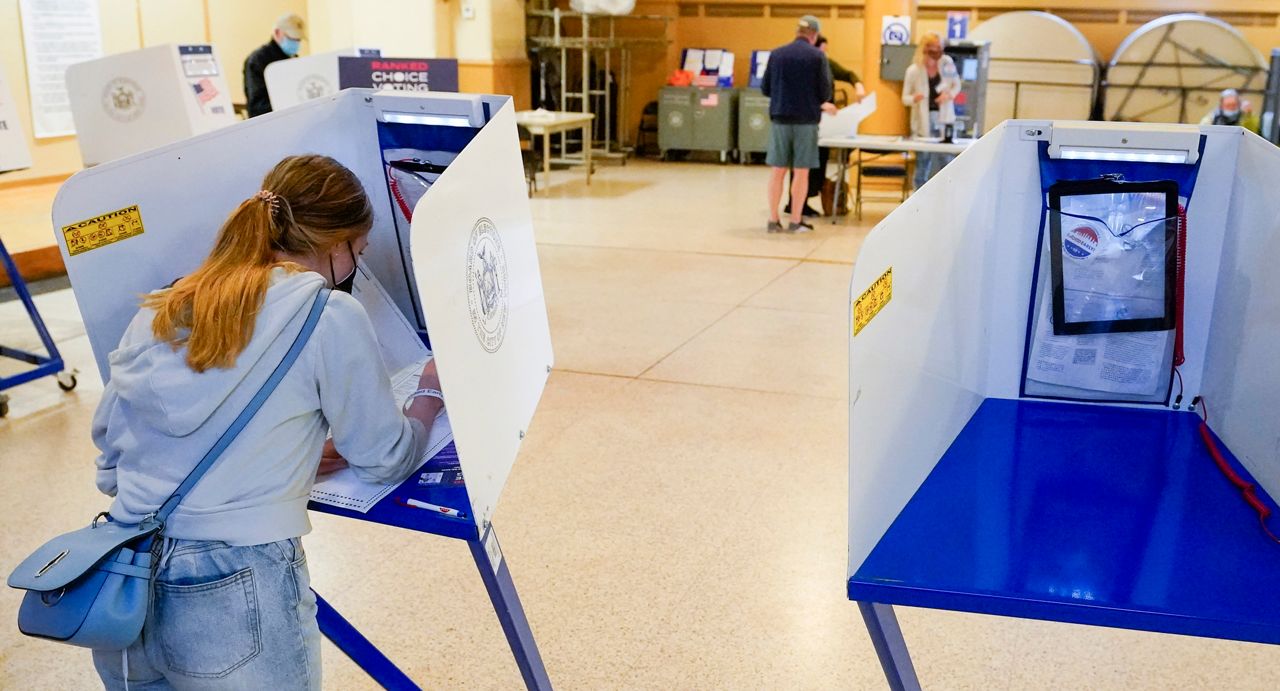Surprise upsets, cliffhangers and, yes, some pretty expected outcomes. Voters across New York on Tuesday returned a mix of results across primary races in communities from Buffalo to New York City that have all grappled in the last year with a pandemic and calls for reforms to policing and public safety.
Here are four takeaways from the Primary Day results so far.
1. A bad night for some incumbents.
Buffalo Mayor Byron Brown is trying to stretch his tenure to five terms in the state's second-largest city. It would be a historic development for the mayor after being elected in 2005, but one he may fall short of as he trails challenger India Walton in what would be a major upset.
Brown on Tuesday night vowed to charge forward and called for every vote to be counted, but Walton's lead could very well hold, making her the first woman and first Black woman to be in line to become the next mayor of Buffalo. Walton, a first-time candidate with progressive backing, is the founder of an affordable housing organization and has been a prominent advocate in the community.
In Rochester, embattled Democratic incumbent Lovely Warren has lost her primary to challenger Malik Evans. Warren is under indictment on charges of campaign finance fraud. Last month, her husband was charged in a drug trafficking ring; Warren has said she is estranged from him and was unaware of the drugs and guns allegedly found in her home.
Democratic voters in the city of Albany, however, returned a different verdict. Mayor Kathy Sheehan handily won her primary against the Rev. Valerie Faust, declaring victory less than an hour after polls closed. Sheehan is running for a third term this year.
In the end, it's a mixed verdict from voters. Brown is a former state Democratic Committee co-chairman, an ally of Gov. Andrew Cuomo who has clearly made Buffalo a key beachhead for him in statewide elections. Is incumbent fatigue setting in broadly, or just in some cities? Is this is a sign of progressive ascendancy in mayoral races? It's one race in one city for the moment.
2. Social media isn't always real life.
Andrew Yang, the former New York City mayoral candidate, has a fervent following on Twitter. But once again the clout on social media does not cleanly translate into success in the voting booth.
Yang was the first top-tier candidate in the Democratic mayoral primary to concede defeat in a race where the final outcome may not be known for weeks given the rules of ranked-choice voting. But at the outset, the initial results show social media doesn't lead to success. Yang's Twitter following stands at around 1.9 million. So far, he's trailing front-running candidate Eric Adams who has fewer than 14,000 accounts following him.
This has played out before when an analog Cuomo was challenged in 2018 by Cynthia Nixon in the Democratic gubernatorial primary. The web-savvy Nixon campaign, ultimately, notched the same percentage of the vote as Zephyr Teachout four years previously against Cuomo.
3. Turnout was low in many places.
In 2013, when incumbent Albany Mayor Sheehan was first running for the job against Councilman Corey Ellis, more than 10,000 Democrats cast votes in the race. At the moment, just over 6,000 votes were cast in her primary eight years later with Faust, according to the unofficial results. More than 200 Democratic voters — more than 3% of the vote — chose a write-in candidate.
Turnout can be difficult to gauge given voters in New York may retain the muscle memory of casting primary ballots in September — this is the first off-cycle primary to be held in June. But given the overwhelming Democratic enrollment in most cities, both upstate and in New York, a handful of voters relative to the overall population can determine the future course of a community.
4. The cliffhangers.
Ranked-choice voting, the method of selecting winners in New York City being used for the first time, will not return an immediate result in the closely watched Democratic primary for mayor. Adams, the Brooklyn borough president, is holding a clear lead. But that could change in the coming days as ranked votes are distributed to the candidates in the race.
In Syracuse, Democrats Khalid Bey and Michael Greene have only 46 votes separating them in the mayoral primary. About 550 absentee ballots will be counted in the coming weeks.



